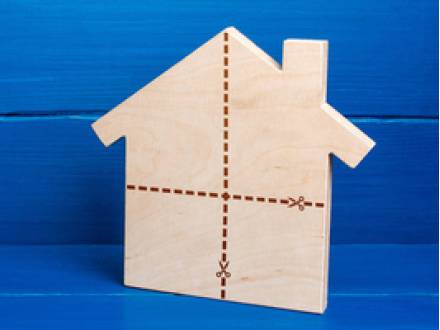When Judges Divide Your Stuff in a Divorce, How Do They Decide?
 If you are getting divorced in Illinois, one of the most important parts of the process is dividing your property. You might assume everything gets split 50/50, but that is not always the case. Illinois uses an "equitable distribution" model, which means the court divides marital property fairly, not necessarily equally.
If you are getting divorced in Illinois, one of the most important parts of the process is dividing your property. You might assume everything gets split 50/50, but that is not always the case. Illinois uses an "equitable distribution" model, which means the court divides marital property fairly, not necessarily equally.
Most divorces in DuPage County do not go to trial. Reaching a settlement is usually faster, less expensive, and more predictable than letting a judge decide. But to make informed decisions — or to know what might happen if you do end up in court — it helps to understand how Illinois law handles property division. Our Naperville, IL divorce lawyers are here to help.
What Counts as Marital Property in an Illinois Divorce?
Under Illinois law 750 ILCS 5/503, anything either spouse acquires during the marriage is presumed to be marital property, regardless of whose name is on the account or title. This includes:
-
Income earned by either spouse during the marriage
-
Homes, cars, and other real estate bought after the wedding
-
Retirement savings, pensions, and investment accounts
-
Personal property, like furniture or electronics
-
Business interests started or grown during the marriage
Separate property — such as an inheritance, a gift, or property owned before the marriage — usually stays with the original owner, unless it was commingled or used for shared benefit.
What Factors Does the Court Consider When Dividing Property?
If you and your spouse cannot agree on who gets what, the court steps in. Illinois judges weigh several factors when dividing property under equitable distribution. These include how long you have been married, how much money you each make, whether one of you contributed to the marriage in ways besides working (such as raising young children), and whether you have a valid prenuptial agreement.
Judges have great flexibility when it comes to dividing assets, and you may not like the way the judge presiding over your case decides to divide yours. That is one reason settling out of court with help from an attorney or mediator might better suit you, as it gives you more control over the outcome.
Do Judges Also Divide Debt in a Divorce?
Marital debts are divided in the same way as marital assets. That means credit card balances, car loans, and mortgages taken out during the marriage are typically shared responsibilities. Even if one spouse handles the finances, the other spouse may still be legally responsible for part of the debt.
What Happens to the House in an Illinois Divorce?
If you own a home with your spouse, what you do with it depends on several factors: Did you buy the home together? Did one of you own it before marriage? Can either of you afford to keep it alone?
Sometimes, one spouse keeps the home and refinances to buy out the other’s share. Other times, the home is sold and the proceeds are split. Judges consider the best interests of any children, too, which might mean awarding temporary use of the home to the parent with primary parenting time.
How Can I Avoid Having a Judge Make Property Decisions in My Divorce?
It is almost always better to settle property division out of court if you can. You know your finances and priorities better than anyone. Reaching a fair agreement with help from a Naperville divorce attorney can save time, reduce conflict, and lower legal fees.
Still, you need to prepare as if your case might go to court. That means collecting financial records, documenting major purchases, and understanding what is considered marital versus separate property.
Contact a DuPage County, IL Divorce Lawyer Today
At Pesce Law Group, P.C., our Naperville, IL divorce attorney will help you reach a fair and efficient settlement and protect your interests if you do end up having to go to court. We offer free consultations and decades of experience guiding people through property division and divorce. Call 630-352-2240 to schedule your appointment today.











 630-352-2240
630-352-2240



